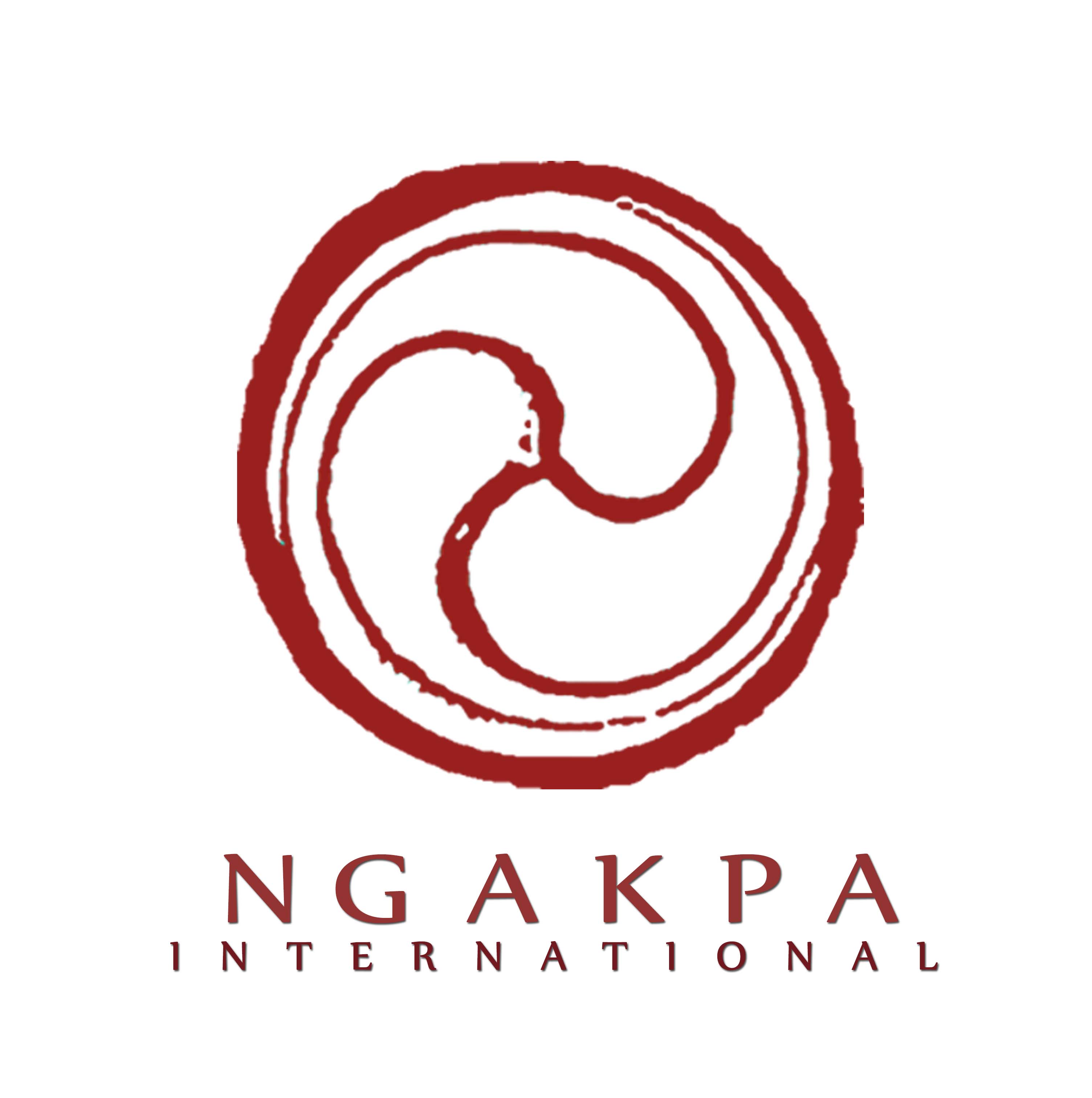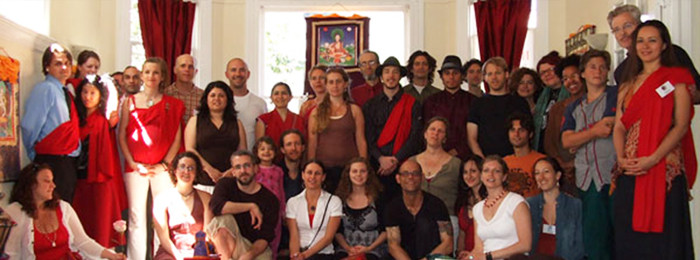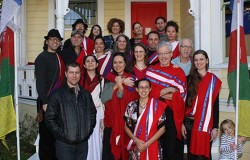Course Format
The class meets once a month via the web, in addition to reading assignments, practice requirements, oral presentations and debates on Buddhist philosophy.
Topics Covered Include:
- Sakyamuni Buddha’s Life as told variably in the 3 Yanas
- Intro to Tibetan Buddhism
- The 4 Noble Truths & Vajrayana
- Path of Buddhist Yogis; Historical Overview
- Freedoms & Advantages
- Impermanence of Life
- Defects of Samsara & the Purity of Everything: Sutra and Tantra on the Base of the Path
- Actions to be avoided and cultivated; Conduct for Buddhist Yogis
- The Goal of the Path in the Three Yanas & the Benefits of Liberation
- Yogācāra
- Madhyamaka & 2 Truths;
- MahaYoga & the History of Tantra
- Ati Yoga: Definitions
- Understanding Mind
- Buddhist Answers to the Big Questions
- Introduction to Dzogchen
- Buddha Nature in Dzogchen
- Play of Experience
- Abandoning Hope & Fear
- Dzogchen Lineage
- Dzogchen Base, Path & Fruit
- Ati Yoga: Divisions;
- Dzogchen and origins of dissatisfaction and freedom from it
- Dudjom Rinpoche’s “Correction of Misconceptions About the Nyingma”
- Longchenpa’s Mirror Revealing Crucial Points
- Treasure Revelation, the Visionary History of Nyingmapas
- Yidam Practice Essentials
- The Five Certainties
- Gender in Buddhism
- Dharma Protectors
- Gompopa’s Jewel Ornament of Liberation
Stages of Study
- Most students of Pema Khandro take the Ngakpa Training on an ongoing basis as a support for serious long term study of Buddhism and as a source of connection to the Lama, the sangha and the wisdom of the path. For students who also wish to take on leadership roles, the following stages of accomplishment are recognized.
- Upon completing the two years of the curriculum, the students are qualified to act as mentors in the Vajrayana Training and as long as they are continuously enrolled, they are qualified to lead the community classes, discussion groups and an Introduction to Buddhism curriculum composed of eight sections.
- Students who have: completed five years of the curriculum, completed ngondro, acted as mentors in Vajrayana Training for at least two years and have completed an oral exam are entitled to wear the three panel red and white Ngakpa shawl, representing the lineage of Tibetan Buddhist Yogis.
- Students who have earned their Ngakpa shawls may also eligible to apply for ordination in the Ngakpa Tradition.
Pre-requisites
This class is open to the registered personal students of Pema Khandro. These students are known as the “Vajra Sangha,” the long-term personal students of Pema Khandro. Entrance to Vajra Sangha depends on application and interview. Pema Khandro takes a practical and philosophical approach to her role as a teacher. She sees herself primarily as an educator and her relationships with students is based on mutual respect, trust and dharma friendship. For more information about Vajra Sangha membership see: https://ngakpa.org/becoming-a-student/
For new students, a period of six months in Vajrayana Training or attending two to three retreats is the suggested preliminary before applying but is not required in all cases.
Commitments
Vajra Sangha membership has many benefits including a personal connection with the Lama and other like minded Buddhist practitioners. Many of the members have been Pema Khandro’s students for over a decade. Vajra Sangha members maintain an ongoing commitment to sustain the activities of the school through a service, monthly pledge and maintaining the five precepts, the fundamental Buddhist vows.


